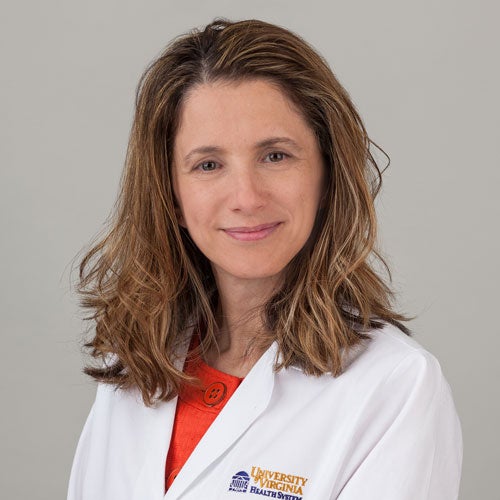
Nassima Ait-Daoud Tiouririne, MD
Pioneering researchers at UVA Health are testing whether focused sound waves can help people overcome cocaine addiction, a growing problem in Virginia and elsewhere.
The scientists have launched a clinical trial, believed to be the first of its kind in the world, to test whether low-intensity focused ultrasound can help reprogram brain cells to reduce the desire for cocaine. The noninvasive approach focuses sound waves on a portion of the brain called the insula, thought to play a critical role in multiple forms of addiction. If the trial is successful, it could pave the way for an important new tool to treat addiction in general.
“This trial will inform us if focused ultrasound could change the way some patients feel about cocaine,” said principal investigator Nassima Ait-Daoud Tiouririne, MD, the director of UVA’s Center for Leading Edge Addiction Research (CLEAR). “What if we could reverse brain changes caused by drug use? This would change the way we treat addiction as a whole.”
Cocaine Addiction: A Growing Problem
Cocaine use has been increasing steadily in Virginia for a decade, the researchers note. Overdose deaths jumped by a third from 2019 to 2020 alone. Those troubling trends have the UVA scientists eager to find innovative ways to reduce people’s cravings for the highly addictive drug. There are currently no medications approved by the federal Food and Drug Administration that can help people quit.
In their new trial, the UVA researchers will use focused sound waves to gently massage cells within the insula. The scientists will then see if the approach causes chemical changes in the brain that reduce cocaine cravings. (Prior studies have already shown that the insula plays an important role in both cocaine cravings and relapse; further, the researchers note, humans who suffered injuries to the insula were able to quit smoking easily, without suffering cravings or relapse.)
If the approach proves safe and effective, patients might one day soon go for a simple outpatient visit and leave with less desire to use cocaine.
“If successful, we become one step closer to developing new, safer ways to treat addiction,” said Ait-Daoud Tiouririne, of UVA’s Department of Psychiatry and Neurobehavioral Sciences. “Addiction is brain disorder. Treatment should include noninvasive neuromodulation of the brain circuits that cause the addiction in the first place.”
UVA’s trial is recruiting people ages 18 or older who have been diagnosed with cocaine-use disorder and who are not trying to give up using cocaine. For more information about the trial, visit https://med.virginia.edu/uva-clear/lifu-cocaine-use-disorder/.
The trial has received $5 million in support from the National Institutes of Health’s National Institute on Drug Abuse, grant 1UG3DA054789-01A1.
Read the full press release in the UVA Health newsroom.
